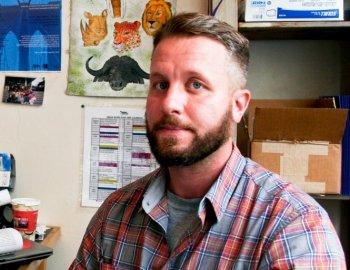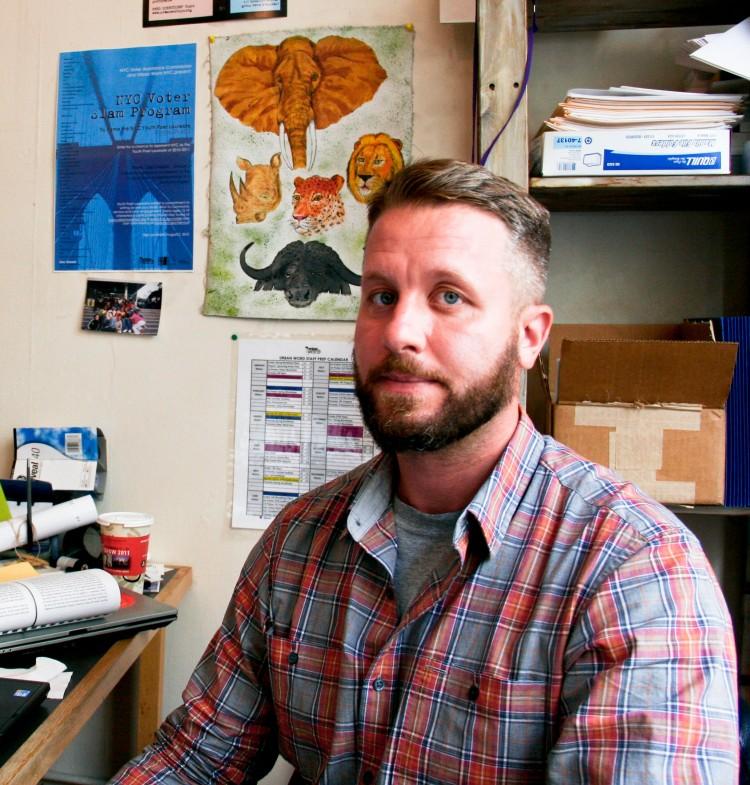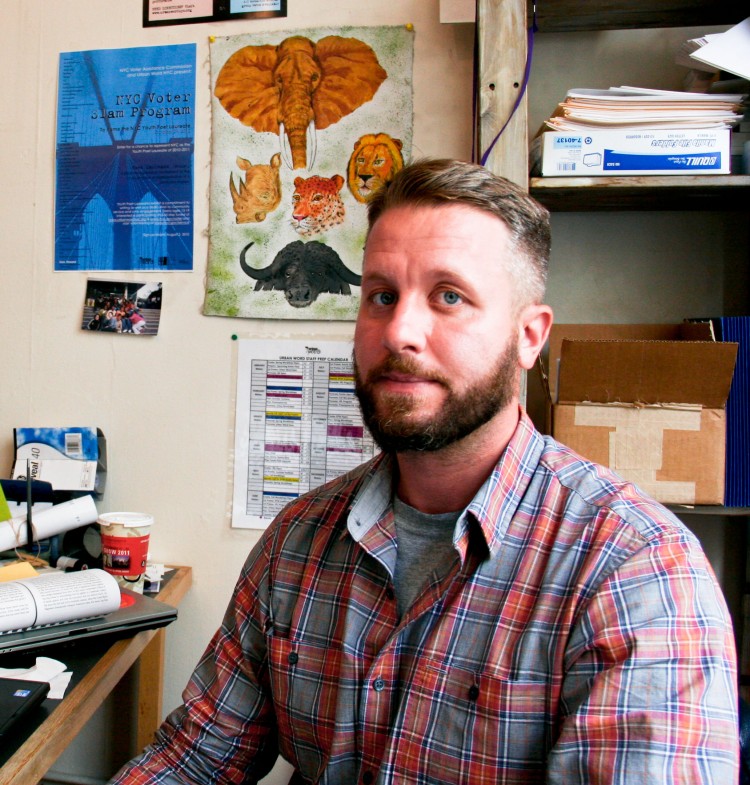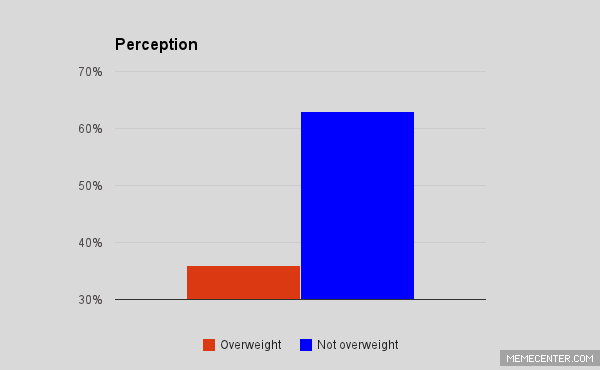NEW YORK—Michael Cirelli is a poet, but his full time job—giving teens a place to perfect and perform their art—sometimes gets in the way.
He sits in a crowded space in Chelsea, the room divided by a thin separation into workshop spaces and an administrative area. Sound, naturally, flows freely, ignoring the barriers between the spaces. This is the Urban Word, a grass-roots organization that presents literary arts education and youth development programs in the areas of creative writing, journalism, college prep, literature, and hip-hop, where Cirelli acts as the executive director.
He first started writing after high school, and soon turned it into a career. Later, he got into teaching English and poetry in high schools, which naturally led him to his work in Urban Word.
When he first came to New York City in 2003 to get his master’s degree from the New School, the organization was much smaller. Now, it hosts more than 100 performances a year, including on Broadway and in the Apollo Theater in Harlem. Free workshops available for teens of every sort and shape are held 6 days a week in three locations in the city.
The Epoch Times: Why is Urban Word needed?
Michael Cirelli: It is necessary because they do not live in a world that validates their voice. On the most basic level they do not have the right to vote, if they are under 18. Most school systems use a method of teaching that is antiquated. It is called the “banking method,” where the teachers talk to them and they bank it into their mind and then regurgitate it back. Our teaching method is called the student-centered approach. Urban Word is necessary because not a lot of people know what is on the mind of our young people. What they are saying, what they are interested in.
The Epoch Times: What comes out when they are given a chance to express themselves?
Cirelli: Incredible stories of self-identity. There is a lot of identity work that happens. People talk about what it means to be them, what it means to be [for example] a young person that is from Crown Heights, Brooklyn, and African-American, or from that part of town, and Latino.
We really make an emphasis on making this place safe and uncensored. As long as they talk about what is important to them, and it does not hurt someone else, that is our main guideline. We have the most diverse groups of kids that come in here. We have queer, white, black, Latino, Jewish, [and] Muslim. They all come here because it is a safe and tolerant space. Everyone is here for the same goal of empowering their own voice and their own individual views.
Being in NYC, which is such an artist Mecca, the art making is very elevated. Our students, being New Yorkers, are naturally pushing the boundaries of what it means to be a poet or a hip-hop artist. There is a culture of outdoing each other.
The Epoch Times: When did you know you wanted to be a poet?
Cirelli: For me it came a little later in life. When I graduated from high school I did not have anything I did artistically. Shortly thereafter I started writing poems. I don’t know why that is what I started to do, but I just started to do it and I liked it. Only in my early- to mid-20s I stumbled upon the poetry slam, which is this competition where a poet reads his poem and five judges judge it.
As much as the idea of judging poetry is ridiculous, you get this immediate feedback. Then you have this community of people that are doing the same thing as you. They are making themselves as vulnerable as you are; they are subjecting themselves to these five random people giving you scores. It helped propel my writing.
The Epoch Times: You spend most of your time on nonprofit work. Why?
Cirelli: It feels good to directly see where your work is serving and it’s serving people instead of a bottom line of dollars and cents. Everything we do comes to fruition because of actual people and things that happen, as opposed to money in the bank.






